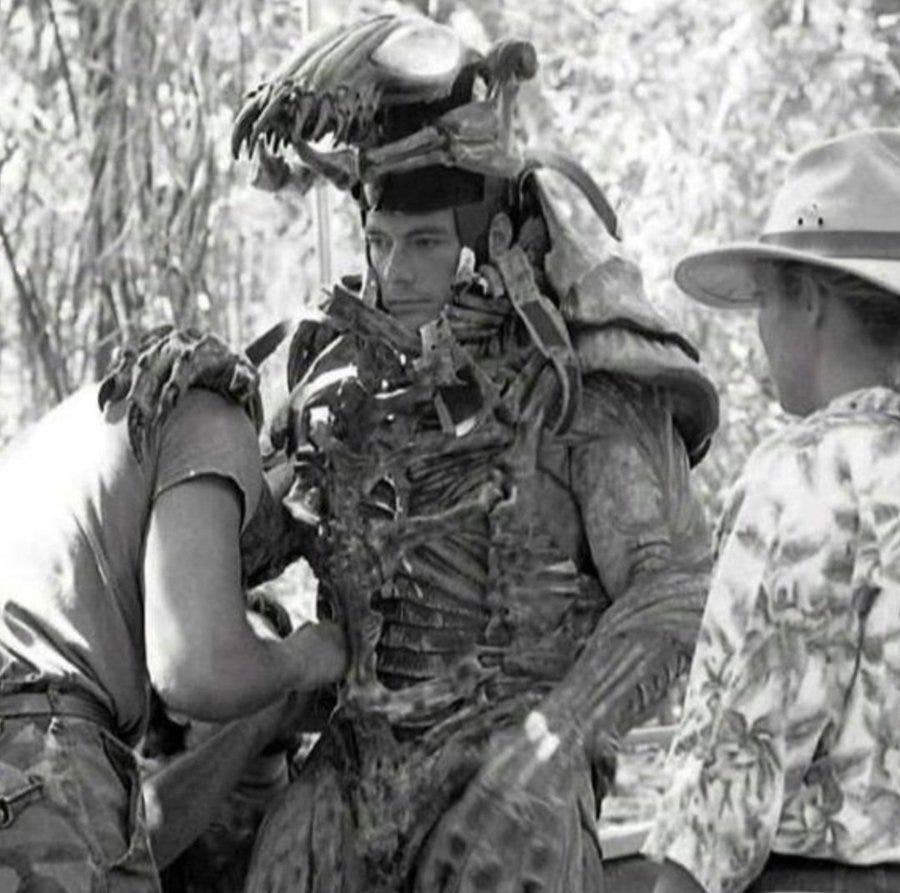Last time, I bullshit (bullshat?) my way through one of the ways that humans are similar to A.I. And if you think about it, it is a whole lot easier to design something that works in a way that you are familiar with, than try to create a whole new way that no one will even know if it works, let alone how you even start… It’s one of the reasons that some people are averse to social paradigm shifts. Because what exactly are you supposed to do after everything has changed? Where do you even start? And then before you know it, you’ve installed another fascist ruler, because how else are you supposed to do things?
You go with what you know, because you don’t know what you don’t know. Most aliens in movies are humanoid because, well, people are going to be in the costumes and under the makeup, so from a design point, there’s only so much you can do. Some people have theorized that alien life could be silicon-based instead of carbon-based, like everything on Earth is, because of the two elements proximity to each other on the periodic table and similarities in their structure. How do you even begin to imagine what kind of being would result from that?
So when trying to create thinking computers, engineers took what humans do, and applied it to machines: We get information, and then use that information to inform the ways we act and respond to stimuli in the world.
Pretty much every sentient being reacts in some way to their environment,but there are also some tools that developed in human evolution to help us process information (both external and internal). Our own sort of algorithmic parameters, if you will.
Our brains are really good at finding patterns.
Children tend to listen/believe their parents/adults.
We tend to believe what we are told by other members of our group.
We learn from repetition. Repetition is how we learn. If you repeat something over and over, you’ll learn how to do it. If you want to learn something, repeat it.
If something is repeated in a specific way, that establishes a pattern. Pattern recognition is extremely important when trying to deduce things and anticipate future events. Animal migration patterns. Seasonal flooding. Edible plants. Figuring out who’s related to who. Once you’ve discovered a pattern, your brain doesn’t have to work as hard to constantly process information. It can just coast.
And if there’s one thing brains love to do, it’s be lazy.
Our brains crave patterns. We are constantly looking for mental shortcuts. The less work our brain does, the more energy we are able to conserve (which is something that could have meant life or death in the dawning of our evolution, but now just means we drink another cup of coffee). And if our brains are always looking for patterns, that means if something is almost a pattern, it might just say “Close enough,” and then clock out for the rest of the day.
Optical illusions illustrate this fact most readily. Our brains are used to how the natural world looks, so it applies those rules and patterns even to situations where we know that what we’re perceiving can’t be real. That floppy/rubber pencil bit we all learned in grade school. The paper towel tube hole in your hand. Hell, even animation and motion pictures are just a series of static images that change faster than our eyes can perceive, so it tricks our brains into “seeing them move.”
The difference between people and computers that have been programmed to detect patterns, though, is that we can realize that even though all the information is telling us something should be a certain way, we can step back and realize that it’s a trick. We might still be tricked by the illusion, but we won’t necessarily mistake it for reality. A computer has no choice but to follow its programming and continue to spit out whatever its been programmed to.
Part of growing up and maturing as our own individual human beings, is realizing that we all have our own programming. Then, taking a look at that programming and analysing if that way we are working ultimately is a possitive or negative. Healthy or harmful. Making your life easier or acting against your best interest.
By now you might be wondering: Am I building to something, or just ranting about random stuff at this point? Find out next time…
-bcp
“Pattern Walks” by Cloud Nothings on Apple Music








